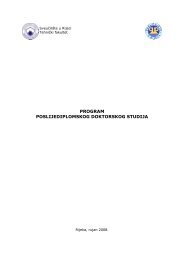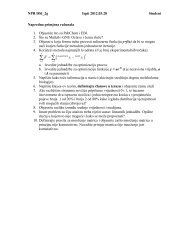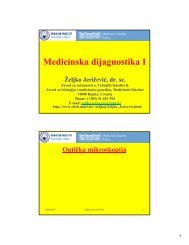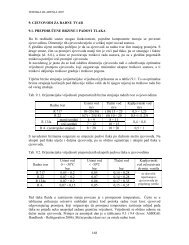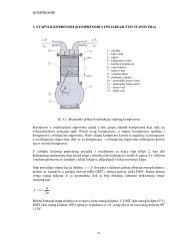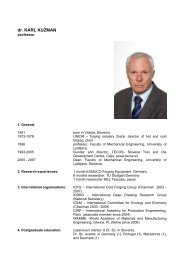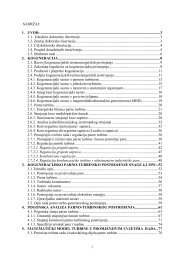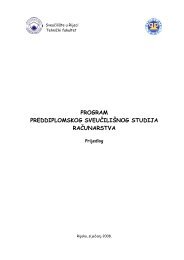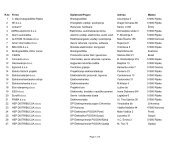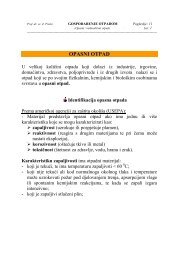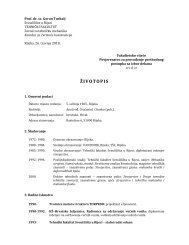universityâenterprise cooperation
universityâenterprise cooperation
universityâenterprise cooperation
You also want an ePaper? Increase the reach of your titles
YUMPU automatically turns print PDFs into web optimized ePapers that Google loves.
to all classes, including low-skilled and<br />
disadvantaged groups, or older citizens.<br />
Additionally, European Commission invited<br />
the member states to:<br />
• Address the issue of sectoral skills in<br />
the context of developing skills and<br />
competences, as a part of the ‘Education<br />
and Training 2010’ Work Programme;<br />
• Use future Community instruments in the<br />
field of education and training to support<br />
the development of sector-based approaches<br />
to skills and competences;<br />
• Ensure effective collaboration between<br />
relevant ministries in the development<br />
of strategies for skills and competences;<br />
• Build partnerships, at national,<br />
regional, local and sectoral levels with<br />
key stakeholders, including employers<br />
and trade unions, in accordance with<br />
national legislation and practice;<br />
• Instigate collaboration between<br />
education and training providers to<br />
exploit existing ICT infrastructures, in<br />
order to widen participation in Lifelong<br />
learning, and improve the level of<br />
e-skills of their citizens.<br />
3.2. Review of past experience, success<br />
factors and recommendations<br />
3.2.1. Past experience<br />
Since the 1980s the European Commission has<br />
promoted university-enterprise <strong>cooperation</strong><br />
through various programs for the promotion<br />
of education and training. This was seen<br />
as a mean of increasing the relevance of<br />
education to the needs of the labor market, a<br />
mean of improving graduates’ employability<br />
and of maximizing the use of knowledge.<br />
In 1986 the European Commission was launched<br />
the Comett program to strengthen <strong>cooperation</strong><br />
between universities and enterprises in the<br />
fields of training and technology. Through<br />
this Comett program, a large number of<br />
partnerships and grants between universities<br />
and enterprises were set up. For example, it<br />
was undertaken a partnership with European<br />
Centre for the Strategic Management of<br />
Universities, EDUCONSULT, Europe & Projects,<br />
Sanon Developement International, and the<br />
Austrian, Dutch, Finnish, French, Hungarian,<br />
Lithuanian, Norwegian and Portuguese<br />
national agencies.<br />
This team of partners analyzed some 200<br />
previously EU-funded project participants<br />
(in SOCRATES, ERASMUS and LEONARDO),<br />
with a goal to view and to explore the<br />
barriers of transnational university-enterprise<br />
<strong>cooperation</strong> and to identify the critical success<br />
factors. The final step of this team work was<br />
to develop recommendations for future models<br />
and strategies.<br />
Since October 2005, universities have been<br />
recognized as providers of the highest levels of<br />
education in EU-level policy making, because<br />
they have the potential to be the world’s leading<br />
knowledge-based economy and society.<br />
Within the Lisbon strategy the Commission<br />
has proposed the modernization of universities<br />
and since then the modernization agenda<br />
has been the one of the subject of global<br />
knowledge-based economy.<br />
By the 2006 Spring European Council the<br />
Commission proposed the establishment of the<br />
European Institute of Technology. The idea<br />
was that this Institute contributes to improving<br />
Europe’s capacity for scientific education,<br />
research and innovation, by encouraging<br />
multi-disciplinary approach and developing<br />
the strong partnerships with business.<br />
In the manufacturing field an important<br />
reference is given by Manufuture. The<br />
mission of Manufuture (European Technology<br />
Platform) is to propose a strategy based on<br />
research and innovation, securing high added<br />
value employment and winning a major<br />
share of world manufacturing output in the<br />
future knowledge driven economy [53].<br />
The best summary of past experiences in<br />
<strong>cooperation</strong> between university and enterprise<br />
23<br />
State of the art in the area of university-enterprise <strong>cooperation</strong> - EU level 3



